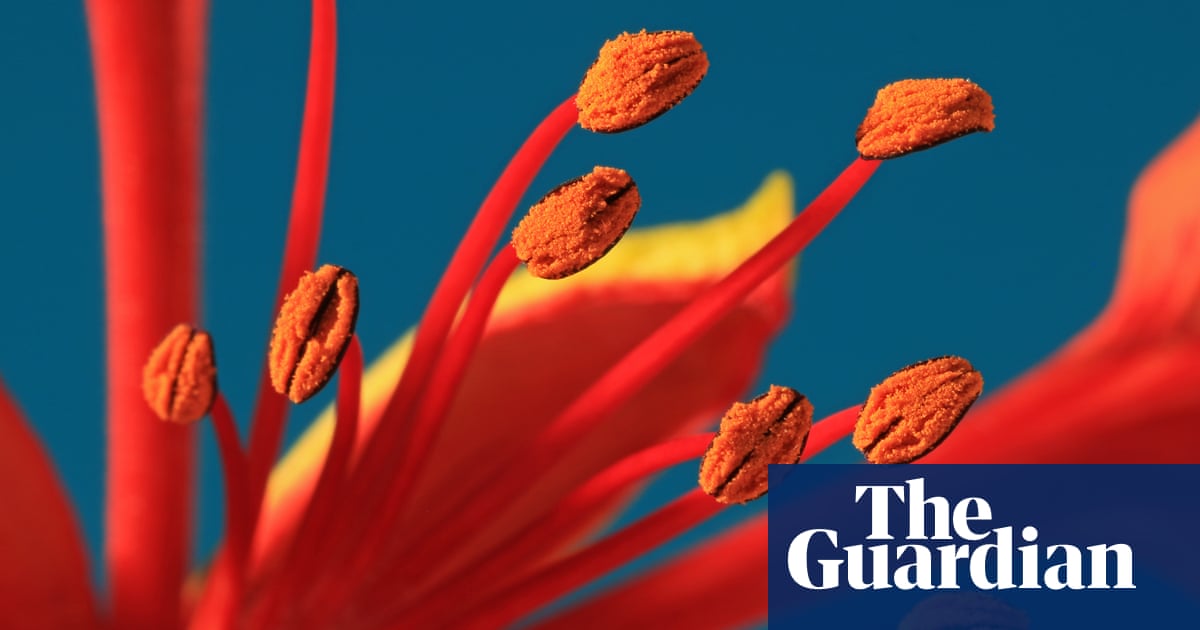Southernmost: Sonnetsby Leo Boix (Chatto & Windus, £12.99)Boix’s second collection is a kind of gay Catholic Latin bildungsroman, beginning with daily life in Buenos Aires as “Mother / sits next to me. Father stares opposite. A red snail / comes out of my mouth.” Queer angst abounds as the speaker moves to England, looking for romantic connection. Boix smooths copious, rarely stalling amounts of lived experience and research into taut, melodic poems that are thick with place: “Humboldt and Bonpland at the Chimbrazo Base / and behind them the highest mountain of Ecuador / rising up, all covered in snow like a tall dessert ice.” The “hidden thread that binds” this book together is the dominant feeling of connection and love for one’s land and others.
An Interesting DetailbyKimberly Campanello(Bloomsbury, £10.99)“Details aren’t automatically interesting,” writes Sarah Manguso in her book of aphorisms, 300 Arguments. Campanello’s sentences are comparable to Sarah Manguso’s: fierce, breathless, seducing the ear by rhythmic propulsion and monosyllabic control, and all while teetering on the blurred boundary between short story and prose poem: “It’s no surprise that at Thanksgiving we wish we had never happened upon the world.” She meditates on power, the environment, writing, and questions the supposedly redemptive power of chronic pain: “I continue to await / the perspective this feeling / ought to bring.” The opening gambit reveals a poet disenchanted with – or perhaps no longer satisfied by – poems situated in the stratosphere, amid “church” or “cathedral bells” ringing, nor in the dark, indescribable mystery that is “beneath the sea”. Campanello’s poetics are startlingly inventive, even as she admits “books don’t know what’s inside their covers, or they don’t care”. This is a work to care about.
Autobiography of DeathbyKim Hyesoon, translated byDon Mee Choi(And Other Stories, £14.99)“In Korea, we believe that when someone dies, the spirit of the dead journeys to an intermediate space that is neither death nor life for 49 days.” Autobiography of Death enacts this limbo over 49 cinematic poems that counterpoint movement and action with empty inertness, a dramatisation of time’s fundamental dichotomy. “You head toward the life you won’t be living,” writes Kim on day one; and then, as if mortality’s meditation spiralled only in on itself, on day 28 “You are born inside death / (echoes 49 times)”. Black-and-white images, by turns cartoonish and macabre, created by the poet’s daughter, Fi Jae Lee, add a buoyant and surreal ghastliness.
Goonieby Michael Mullen(Corsair, £10.99)Whether he is writing in Scots or standard English, Mullen’s descriptive-imaginative faculties are captivating and painterly, well beyond what one would expect of a debut. Listen to the beginning of Pish-the-beds: “Dragon-budded, rhubarb-stalked / juicy shoots propping up / the tapered mane, serrated sunburst.” Goonie’s music is consistently and hypnotically lush in an unabashed celebration of queerness, represented here through the digital culture of apps and social settings such as Pride and house parties. This stunning collection sings itself: “A red flower lacerated on the still-white / night villa, a bleed-creep / of frills (quals flors?) / I wandered the dusk / dust-feral & chaffing (what flower?) / my eyes stalking the black sweep of sea / on the promenade / where sure-boned boys / will know what to do with me.” One to watch.
The Age of Olive TreesbyHaia Mohammed(Out-Spoken Press, £8)“My voice is louder than any bomb / my spirit deeper than any womb,” writes Gazan poet Mohammed in a pamphlet of candid honesty and bravery, documenting the physical and spiritual life of a poet threatened with death on a daily basis as a result of the Israeli offensive in Gaza. Her siblings are a balm, “the warmth / that shields from life’s coldness”. Mohammed describes a disrupted life: “War taught me. I was raised by it once again.” Through the pained voice of her poems, she poses an imperative to the world that she knows is watching: “If you’re going to defy, / don’t do it halfheartedly. Don’t walk in, / jump!” These are poems of survival and endurance: “Honestly the people of Gaza don’t need to study history / they live it.”
